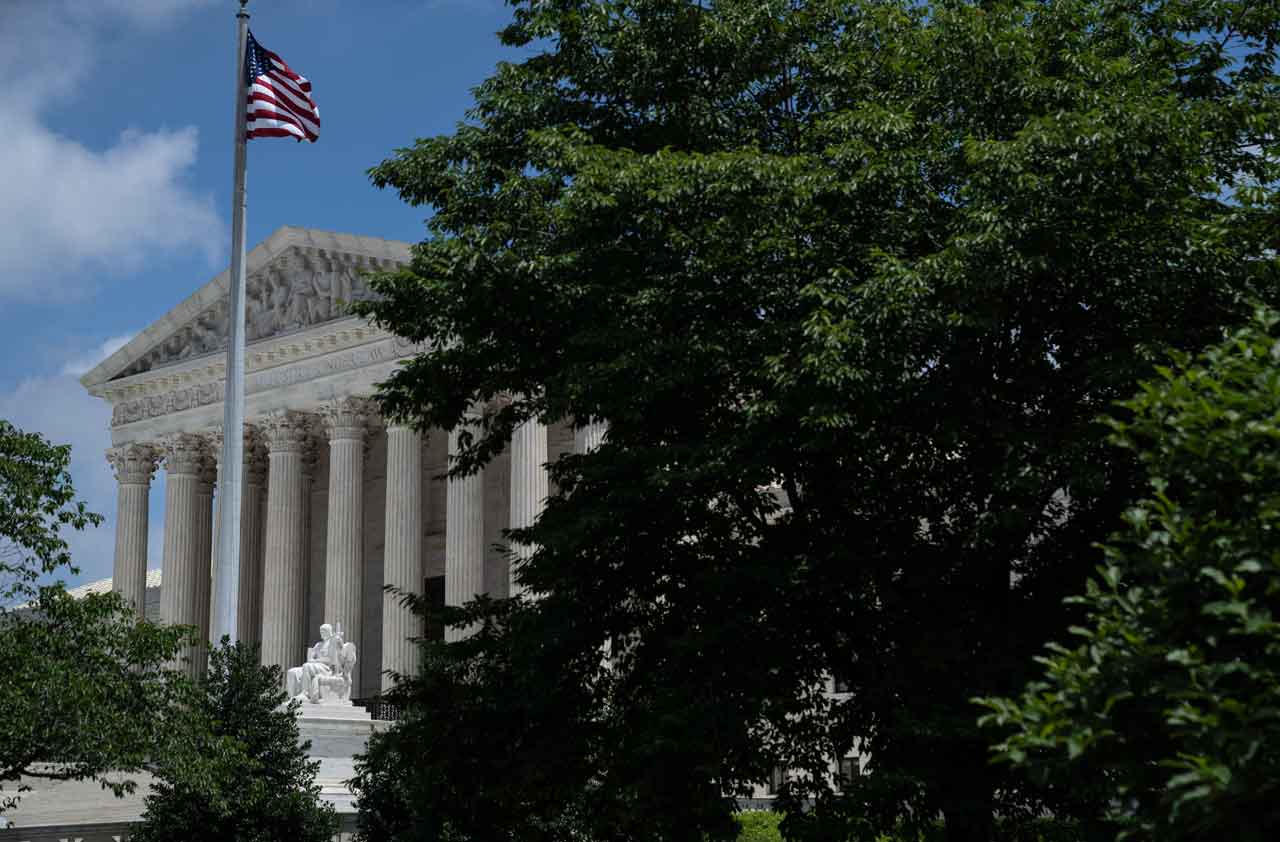Profit and prosper with the best of Kiplinger's advice on investing, taxes, retirement, personal finance and much more. Delivered daily. Enter your email in the box and click Sign Me Up.
You are now subscribed
Your newsletter sign-up was successful
Want to add more newsletters?

Delivered daily
Kiplinger Today
Profit and prosper with the best of Kiplinger's advice on investing, taxes, retirement, personal finance and much more delivered daily. Smart money moves start here.

Sent five days a week
Kiplinger A Step Ahead
Get practical help to make better financial decisions in your everyday life, from spending to savings on top deals.

Delivered daily
Kiplinger Closing Bell
Get today's biggest financial and investing headlines delivered to your inbox every day the U.S. stock market is open.

Sent twice a week
Kiplinger Adviser Intel
Financial pros across the country share best practices and fresh tactics to preserve and grow your wealth.

Delivered weekly
Kiplinger Tax Tips
Trim your federal and state tax bills with practical tax-planning and tax-cutting strategies.

Sent twice a week
Kiplinger Retirement Tips
Your twice-a-week guide to planning and enjoying a financially secure and richly rewarding retirement

Sent bimonthly.
Kiplinger Adviser Angle
Insights for advisers, wealth managers and other financial professionals.

Sent twice a week
Kiplinger Investing Weekly
Your twice-a-week roundup of promising stocks, funds, companies and industries you should consider, ones you should avoid, and why.

Sent weekly for six weeks
Kiplinger Invest for Retirement
Your step-by-step six-part series on how to invest for retirement, from devising a successful strategy to exactly which investments to choose.
Republicans and Democrats are still deadlocked over the bill to raise the debt ceiling, and so far the negotiators appear intractable. Indeed, many lawmakers say they’re not worried about the prospect of the government running out of money if there’s no deal by Aug. 2. Some openly scoff at warnings that a U.S. default would have serious consequences.
The game of chicken over the debt ceiling bill has become an annual fixture, no matter which party controls Congress, but this time it’s proving more serious. The atmosphere is more partisan, and both sides are more entrenched than they’ve been in years. Barring some eleventh-hour bargain, the risk of a default has intensified.
There’s still one thing that could break the stalemate: turmoil in the financial markets. Right now, most investors still believe that lawmakers eventually will compromise and raise the debt limit in time to stave off default. If investors ever begin worrying that they were too optimistic, the markets could begin a free fall. Then watch lawmakers scramble.
From just $107.88 $24.99 for Kiplinger Personal Finance
Become a smarter, better informed investor. Subscribe from just $107.88 $24.99, plus get up to 4 Special Issues

Sign up for Kiplinger’s Free Newsletters
Profit and prosper with the best of expert advice on investing, taxes, retirement, personal finance and more - straight to your e-mail.
Profit and prosper with the best of expert advice - straight to your e-mail.
With financial markets still fragile and prone to quick reaction, the market frenzy could come abruptly. But even before government borrowing hit the current ceiling, there’d be some warning signs: Investors would begin selling off Treasury bonds; stock prices would fall; and the dollar’s value would gyrate.
Once Treasury hit the deadline and began deferring payment of bills, the markets would turn with a vengeance, and would likely overshoot before finally stabilizing. The consequences would be dizzying, and might well plunge the economy into another recession. The political impact also would be swift. Voters would be quick to blame those who brought on the default.
This wouldn’t be the first time that the markets forced the government to take action when it was about to do something irresponsible. In the early 1990s, worried investors—known then as bond market vigilantes—sent interest rates soaring over fears that the Clinton administration’s proposed new spending programs might exacerbate inflation.
When the president finally abandoned those spending plans, the markets eased up again. The Clintonites felt obliged to hew to the new religion they’d gotten and keep a lid on federal spending. The economy surged, and the president ended his second term with a prosperous economy—and a sizable budget surplus, to boot.
Just last week, investor concern over the debt crisis in Greece sent markets all over the world reeling. Prices of stocks, crude oil, commodities, and currencies plummeted everywhere, including the United States. If Greece’s flirtation with default can spark such turmoil, even the hint of a genuine U.S. default could easily wreak havoc.
To be sure, the current situation isn’t an exact replica of the bond vigilante days of the early 1990s. But there already have been hints of something similar in the works. Three major credit-rating agencies have threatened to downgrade the U.S. government’s credit status if Congress fails to increase the borrowing limit by early August.
And some large banks that had been buying U.S. Treasury securities as a hedge against market turbulence are reportedly preparing to reduce their holdings in August and instead will keep more cash on hand to use as collateral for transactions. (In April, private investors sold more Treasury bonds than they bought—for the first time in two years.)
Even if lawmakers finally move to raise the government’s legal borrowing limit before it is forced to stop paying anyone, playing with fire (as lawmakers are doing by holding the debt ceiling bill hostage) risks setting off a conflagration. And by diverting attention from serious budget issues, they’re making sure that any compromise will be meager.
The temporary—and superficial—spending cut agreement that lawmakers put together last spring under similar deadline pressure won them more brickbats than praise and did little more than kick the budget can down the road again, this time to the current debt ceiling bill. If the financial markets go into a frenzy, it won’t provide political cover.
As Federal Reserve Chairman Ben Bernanke put it last week, even a brief default on U.S. government debt “could cause severe disruptions in financial markets,” create “fundamental doubts about the creditworthiness of the United States,” and “damage the special role of the dollar and Treasury securities in global markets” for the long term.
What party wins in that kind of outcome?
Profit and prosper with the best of Kiplinger's advice on investing, taxes, retirement, personal finance and much more. Delivered daily. Enter your email in the box and click Sign Me Up.

-
 How Much It Costs to Host a Super Bowl Party in 2026
How Much It Costs to Host a Super Bowl Party in 2026Hosting a Super Bowl party in 2026 could cost you. Here's a breakdown of food, drink and entertainment costs — plus ways to save.
-
 3 Reasons to Use a 5-Year CD As You Approach Retirement
3 Reasons to Use a 5-Year CD As You Approach RetirementA five-year CD can help you reach other milestones as you approach retirement.
-
 Your Adult Kids Are Doing Fine. Is It Time To Spend Some of Their Inheritance?
Your Adult Kids Are Doing Fine. Is It Time To Spend Some of Their Inheritance?If your kids are successful, do they need an inheritance? Ask yourself these four questions before passing down another dollar.
-
 U.S. Manufacturing Is Already Ailing from Coronavirus
U.S. Manufacturing Is Already Ailing from CoronavirusEconomic Forecasts Supplies are hard to come by, and in the longer-term demand may be at risk.
-
 Will You Have to Pay More Sales Taxes on Your Online Purchases?
Will You Have to Pay More Sales Taxes on Your Online Purchases?business One thing’s for sure: Consumers who live in one of the five states without a sales tax won’t be affected by the Supreme Court’s ruling.
-
 What to Expect From the New Fed Chief
What to Expect From the New Fed ChiefEconomic Forecasts By and large, Jerome Powell will move along the path set by his predecessor.
-
 How a Border Tax Would Affect You
How a Border Tax Would Affect YouBusiness Costs & Regulation A plan to limit imports could raise prices but also create more jobs.
-
 A Housing Shortage Looms: Builders Can’t Keep Up
A Housing Shortage Looms: Builders Can’t Keep Upbusiness Starter homes especially are becoming scarce.
-
 Help Wanted in America: Skilled Workers
Help Wanted in America: Skilled WorkersTechnology In an ever-more-competitive job market, technology increases the need for skilled workers.
-
 The Unintended Consequences of a Boost in Overtime Pay
The Unintended Consequences of a Boost in Overtime PayBusiness Costs & Regulation New rules mean millions more employees will be overtime-eligible. But will employers find workarounds?
-
 U.S. Economy to Perk Up in Second Half
U.S. Economy to Perk Up in Second HalfEconomic Forecasts Consumers are recovering from a swoon induced by a wobbly stock market. But energy, other sectors will continue to struggle.
